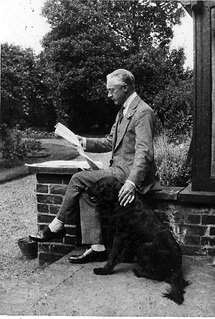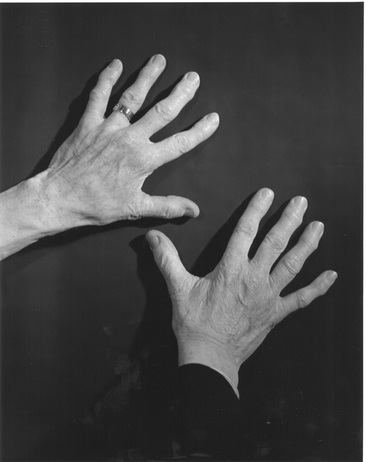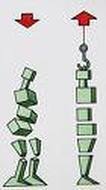WHAT would it do for me?
There are two things I would like to say first about this powerful work: what it can offer you, and something that might surprise you….
1. The Alexander Technique assists you to enjoy day-to-day ease, comfort, flexibilty, and presence. 2. The Alexander Technique is not about positions, stiff posture, exercises, or a 'belief system', and you're not going to be criticised for being wrong. So, now you can breathe easy and read on knowing you'll be accepted right where you're at, and because where you're at is always the best place to begin. But do let's start, because there is far more balance, ease, and flexibility available to you than you think. Let's start with.... ...Three frequently asked questions: What would it do for me? - The Alexander Technique offers you ease, comfort, tone, flexibility, and presence, and the wisdom of how to enjoy this during your daily round. People come to this work for many differing reasons - to rid themselves of pain, to reduce anxiety, to increase their performance abilities, or for reasons of personal development and transformation. How does it stop my back pain? - There's a lighter explanation below, but scientifically it includes this: through the the re-activation of your innate co-ordination system and the re-integration of your musculo-skeletal system, your body begins to work as it was designed to function, without twists, rigidity, contraction, or collapse. The effort you think you need to hold your body up can be released. Pain can be either greatly reduced, or go away entirely. I often hear it's about posture - is this so? - Although my work is not directly about posture, during the re-balancing process, the body regains its natural poise and balance, and students discover that their posture has automatically improved as a result of this. ..."TELL ME MORE?" Do you remember this sentence from the home page about when we are told what's 'wrong' with us?... "Perhaps we need to ask more often, "What's in a label?", "How did it happen?", "What now?" These questions are exactly what Frederick Matthias Alexander asked when he visited doctors to sort out his persistent voice loss and breathing difficulties as an actor. And you and I follow his inspired process as we seek to unravel those things you have unwittingly created in yourself, as did Alexander - barriers which prevent you from doing what you want to do with ease - old movement habits which have resulted in pain, stiffness, poor co-ordination, and maybe low self-belief. Alexander, an actor with persistent voice-loss, having found no joy with the medical profession, decided to observe himself closely in mirrors as he carried out the act of reciting. He saw an immediate interference to the balance of his head as he spoke which depressed his larynx, this creating a friction and rigidity which manifested in his voice-loss. How easy to 'just not upset my head' he thought. Not so, because what he did as he recited was so tied up with his need to 'Be an Actor' that it was hard to prevent the old habits rushing back in at the last moment before speaking. And that was the key; the more he resisted, the more they persisted, so it wasn't about resisting them (which set up more problems that before), it was about speaking without the interferences beginning in the first place. To make this discovery on his own through long and patient empirical learning - and have his problems disappear completely - was extraordinary, and we are lucky now to have the help of teachers of his work to guide us much more quickly through our own process. Together we make similar discoveries to FM Alexander; those appropriate to your own interferences in your own way of life. To learn how to not have them happen at all, and then experience what life is really like when unimpeded by your old habitual ways of moving and being. We look at what is it that you do in order to be who you think you need to be. Which muscles do you tense? Where do you collapse? Where do you stiffen, and how? How do you hold your breath? How do you 'Do You'? How might it feel to be free of all that and Just Be? Calmly, vibrantly, pain-free, and with great alertness? Because when we do this, life comes back into colour and we become 'possibiltarians' again. This work facilitates wisdom and mastery of the self. As an Alexander teacher my touch invites your body to re-experience being back in balance and facilitates a happier experience of moving. Coupled with a conversation as to what is happening, your learning is consciousness - you becoming aware of what it is you are doing and how to allow the changes to begin. This wisdom then never leaves you; you are a student learning a practice that can help you for the rest of your life - a technique for living, in this case, FM Alexander's. A few things to ponder:
|
This video is from AmSat - the American Society of Alexander Teachers and is a clear and fun introduction to the work.
"A proven approach to self care, the Alexander Technique teaches how to unlearn habitual patterns that cause unnecessary tension in everything we do. It's used by people of all ages and abilities to enhance the performance of every activity and relieve the pain and stress caused by everyday misuse of the body." This video summarizes the results of a major back pain study published in the British Medical Journal in 2008. The study showed that the Alexander Technique was highly effective in treating back pain. There have more recently been follow-up studies that confirm this result.
Links for more informationClick for: The Alexander Alliance International:
Click for the: Bristol Study reveals the benefits of Alexander Technique lessons for sufferers of chronic pain www.alexandertechnique.com - for MP3s, video clips, links, books, essays, blogs, resources, research, scientific and medical endorsements, where to find a teacher worldwide.... www.stat.org.uk - for teachers in the UK and other information. F M ALEXANDER
Frederick Matthias Alexander was born in Tasmania in 1869 although his family were originally from Sussex in the UK. He was a sickly newborn who was not expected to live as he was not able to suckle, but he survived through the clearly inheritable determination of his midwife mother who fed him milk using the ink-re-filling-bulb in a fountain pen! Passionate about Shakespeare from an early age, 'FM' went on to become a well renowned performer of 'declamatory thespianism' - reciting the works of Shakespeare all over Australia and New Zealand. So to begin to lose his voice on stage was a disaster, but it stimulated his pioneering curiosity and determination and sent him a journey of discovery - the one we are now extremely grateful he took.
Having re-gained free (and even better) use of his voice, FM then found he was in much demand to assist other performers in many ways, as not only their voices and breathing improved, but a great deal else. FM was called to work in London in 1904, and then America, dividing his busy and long teaching years between the two for the rest of his life. FM suffered a stroke in his 70's which affected his left side and he was told he would never walk again, but within three months he was back teaching and as active as ever. The 'sickly babe' died aged 86 in 1955, just four days after giving his final lesson. In 1931 he agreed to set up the first teacher training school and new generations of teachers were born, as they still are today. Training to become an Alexander teacher involves attending a three or four year training course to complete the approximately 1500 hours requirement. There are now teacher training schools all over the world and many thousands of teachers, along with worldwide Alexander Societies overseeing the teaching of his work with a full and detailed Code of Conduct. As the AT is most certainly not only for performers, thousands of people have gained benefit from the work, and some well known people who have the AT in their lives are: Aldous Huxley, Roald Dahl, Judi Dench, Ben Kingsley, Michael Caine, Jeremy Irons, John Cleese, William Hurt, Paul Newman, Robin Williams, Paul McCartney, Madonna, Victoria Beckham, Yehudi Menuhin, Sting, and Nobel Prize winner for medicine and physiology, Nikolaas Tinbergen, who devoted over half his acceptance speech to Alexander's work. What can be helped?An improved co-ordination in all skills.
Back and neck pain. Headaches and migraines. Joint pain RSI Carpal tunnel syndrome Fybromyalgia Rehabilitation from Back and joint surgery. Osteo-arthritis * Pain management of rheumatoid arthritis Management of Parkinson's Disease Anxiety Depression Chronic fatigue/ME * Many of us could be said to have 'arthritis', but often it is truly just 'arthritic change'; the bone at a joint having increased in size from the muscular pulls on it through simply our being alive for more than a few years. '...itis' means inflammation, and frequently this 'arthro' (joint) 'itis' (inflammation) is actually caused by the friction caused in joints which are not being given enough room to move freely due to the way our habits have us use them, and from tension carried in order to 'save' the joint. Remove the habits, and although the bone will still stay larger than when young, there is the possibility of little or no pain because there is no longer any friction to cause inflammation, or pain created by tension. FM Alexander's hands suggested quite marked arthritic change in the fingers, but he never had pain due to the soft flexibility he enjoyed through his work. Rheumatoid arthritis however is a very different problem, but the AT can still help in the management of the resulting pain and stiffness. |
FM's hands....


